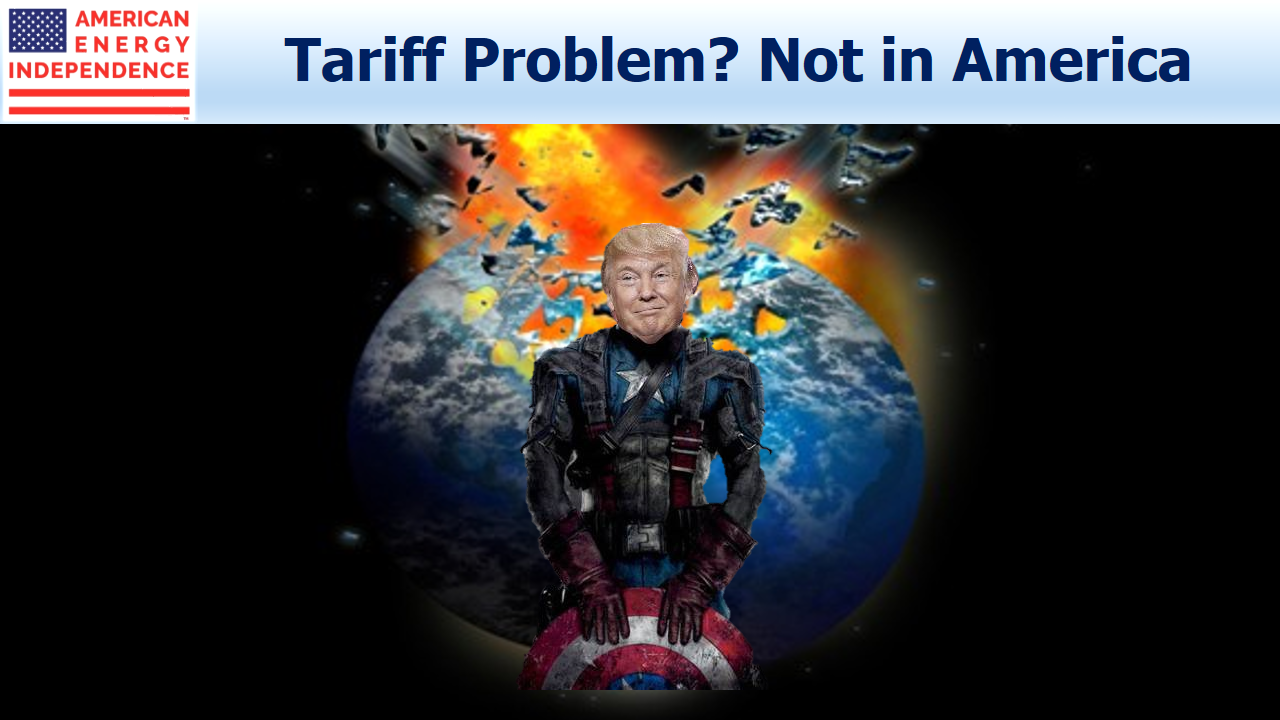Yesterday’s White House announcement that newly imposed tariffs on Chinese goods would be delayed three months sent stocks higher. The trade dispute hasn’t hurt the U.S. that much, although there’s widespread evidence of financial distress among farmers. Agriculture Secretary Sonny Perdue showed his sledgehammer wit in a joke aimed at farmers complaining about tariffs. China recently stopped buying U.S. agricultural products entirely in response to the latest U.S. tariffs. Farmers vote, and the White House has modestly recalibrated its approach. Trump clearly enjoys the relatively unfettered freedom of action afforded the president on trade.
Trade friction threatens global growth. The IMF recently called for a quick resolution between the U.S. and China. It’s blamed for the continuing drop in bond yields, with some investors openly contemplating whether the U.S. could soon join other developed country sovereign debt with negative interest rates. U.S. ten year yields of 1.7% are the highest in the G7, and among those who shop for value in government bond markets they probably look enticing.
America’s higher yields reflect our relative immunity to trade war fallout. The S&P500 recently broached 3,000 for the first time before retreating on new tariffs. But yesterday’s bounce took it back to within 3% of recent al-time highs. We noted last week how the Equity Risk Premium provided a compelling case for investors to allocate towards risk assets (see Stocks Offer Bond Investors an Opening).
Although Trump’s protracted dispute with China has broad domestic support, we continue to believe that a resolution will be found within the next few months, so as to avoid any economic fallout in an election year. Expect to see agricultural exports and natural gas heralded as big winners.
The U.S. energy sector could certainly use a confidence boost. Pipeline earnings have generally been at or ahead of expectations. The bull story relies on the growth in free cash flow (see The Coming Pipeline Cash Gusher). 2Q19 earnings reports provided further confirmation that growth projects peaked last year, leaving more cash available for dividend hikes.
Traders betting on a global slowdown are quick to short crude oil, and recent weakness in energy prices has hurt the sector’s stocks too. No matter that pipeline company earnings are generally not sensitive to commodity prices. The most asked question by clients recently centers around the incongruity of good operating performance with falling stock prices. The short answer is that several years of dividend cuts left income-seeking investors betrayed. So far this year, this traditional buyer hasn’t rushed back, as shown by flows into retail-oriented funds.
Improving fundamentals and compelling valuations are attracting private equity buyers. Public market buyers will surely follow.
The post Art of the Tariff appeared first on SL-Advisors.


